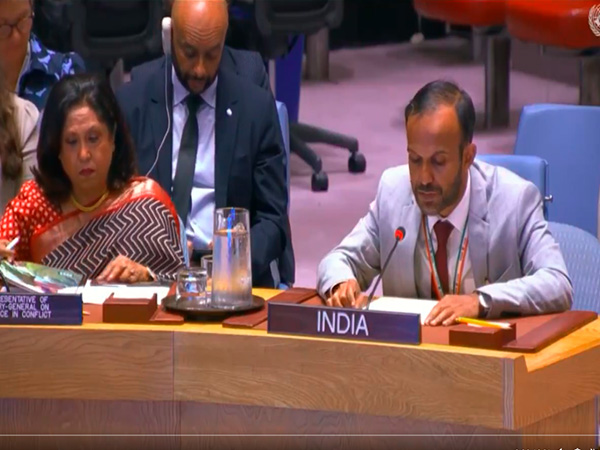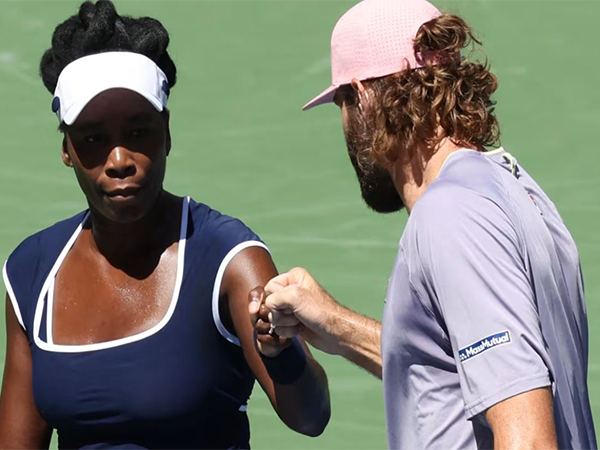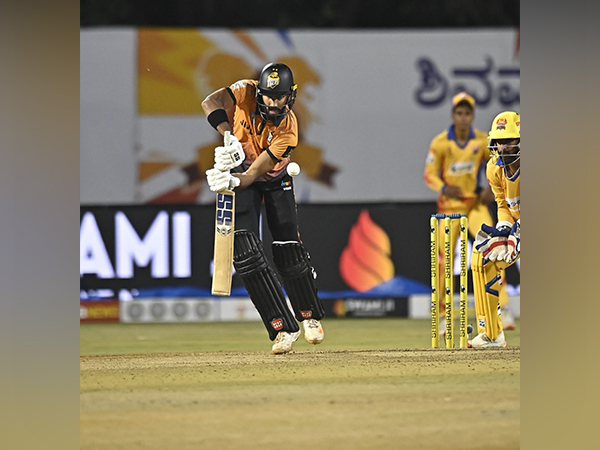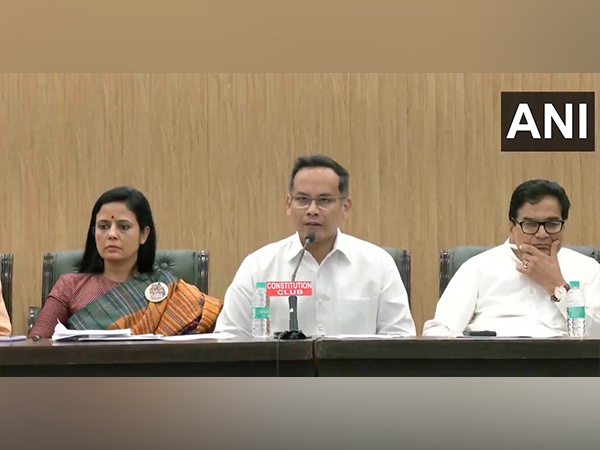New York [US], August 20 (ANI): India’s Charge d’Affaires at the United Nations, Eldos Mathew Punnoos, on Tuesday (local time) highlighted the sexual violence perpetrated by Pakistan ever since 1971.
Punnoos, while delivering India’s statement at the UN Security Council Open Debate on ‘Conflict-Related Sexual Violence,’ said that sexual crimes against women from minority communities in Pakistan continue even today, which is deplorable.
https://x.com/IndiaUNNewYork/status/1957886714992816367
“The utter impunity with which the Pakistan army perpetrated heinous crimes of gross sexual violence against hundreds of thousands of women in erstwhile East Pakistan in 1971 is a matter of shameful record. This deplorable pattern continues unabated and with impunity to this day,” he said.
With Pakistan serving as a non-permanent member of the UNSC, India reminded it of the Pakistani Army’s violations against Bangladeshi women in 1971.
“Rampant abduction, trafficking, child early and forced marriages and domestic servitude, sexual violence and forced religious conversions of thousands of vulnerable women and girls as weapons of persecution towards religious and ethnic minority communities are reported and chronicled, including in the recent OHCHR reports,” he added.
He further stated that the conservative country’s judiciary also validates these deplorable crimes against women.
“These reports highlight that its judiciary also validates the vile acts by Pakistan. It is ironic that those who perpetrate these crimes are now masquerading as champions of justice. The duplicity and hypocrisy are self-evident,” he said.
Punnoos said that the perpetrators of such heinous abuse must be penalised as such crimes leave scars on the entire community of people.
“Perpetrators of heinous acts of conflict-related sexual violence must be condemned in the strongest possible terms and brought to justice. Sexual violence in conflict zones not only destroys individual lives, but tears apart the very fabric of societies, leaving lasting scars on communities for generations,” he said.
Punnoos said that to tackle this issue, support for the victims is essential and prosecuting the abusers.
“A multifaceted approach is essential to address this crime and offer support to its survivors. This includes prosecuting and deterring such crimes in conflict situations, ensuring no impunity for perpetrators, and adopting a survivor-centric approach in prevention and response mechanisms,” he said.
“UNSC Resolution 2467 of 2019 has been instrumental in highlighting the need to provide victims access to national relief and reparations programs, health care, psychosocial care, safe shelter, legal aid, and facilitate rehabilitation and reintegration efforts to bring a semblance of normalcy to their lives,” he added.
Punnoos further highlighted that India was one of the first nations to address the issue by contributing in the Secretary General’s Trust Fund.
“Mr. President, the Secretary General’s Trust Fund in support of victims of sexual exploitation and abuse is an important resource which should be further strengthened. India was among the first nations to contribute to this fund and remains committed to supporting such victims,” he said.
“Our dedication to the cause can be seen from the fact that in November 2017, a voluntary compact was reached between the UN Secretary-General and the Government of India on commitment to eliminate sexual exploitation and abuse in peacekeeping, humanitarian and development work,” he added.
He further said that under Prime Minister Narendra Modi, India joined the circle of leadership on the prevention of and response to sexual exploitation and abuse in United Nations operations, which underscores its seriousness towards the issue.
“Underlining the seriousness attached to the issue by India, Prime Minister Modi joined the circle of leadership on the prevention of and response to sexual exploitation and abuse in United Nations operations. In our experience, the female engagement teams that India deployed in peacekeeping missions across conflict zones have been tremendously successful in connecting with local communities, addressing gender sensitive issues, engaging with victims and enhancing the effectiveness of peacekeeping operations,” he said.
Punnoos added that India formed an all-women police unit and deployed them in various places to address the objective of countering sexual violence.
“In 2007, we were the first country to deploy an all-women-formed police unit to the UN mission in Liberia. Today, we have successfully deployed female contingents in Monosco, UNICEF, and UNMAS with the objective of addressing conflict-related sexual violence. Building on this experience, the Centre for United Nations Peacekeeping in Delhi conducts specialised courses to increase participation of women in peacekeeping operations, including targeted training to prevent and address sexual and gender-based violence in armed conflict,” he said.
He stated that India was prepared to share its expertise with interested countries, a point they also discussed during the Conference of Women Peacekeepers from the Global South.
“India is ready to share this expertise and experience with interested member states through our comprehensive training programs. These initiatives were further discussed during the Conference of Women Peacekeepers from the Global South, held in New Delhi in February 2025,” he said.
“India has implemented a comprehensive domestic strategy for women’s safety. It could offer insights for ensuring access to life-saving services and protection for survivors in conflict situations. First, dedicated resources,” he added.
Punnoos further said that through the Nirbhaya Fund, India is dedicated towards the establishment of safe environments for women.
“India established the Nirbhaya Fund, a non-lapsable fund with approximately USD 1.2 billion for women’s safety. It is dedicated to ensuring safe environments for women, implementing legislation effectively, and creating a comprehensive infrastructure for swift justice and crisis support. Member states could consider creating similar dedicated resources,” he said.
Punnoos said that a pan-India emergency response support system is established in India through Emergency Number 112 for Women’s Safety Issues, among other response mechanisms.
“Second, response mechanisms. India operates a pan-India emergency response support system through Emergency Number 112 for Women’s Safety Issues. Sakhi One Stop Centers established at each district headquarters provide comprehensive services including police assistance, medical care, and legal aid among others to offer protection and rehabilitation with shelter and economic security,” he said.
Punnoos said that India has established training programmes to fast-track investigations and delivery of justice to women.
“Member states could consider replicating this model. Finally, justice delivery. Comprehensive training programs have been developed for investigation and prosecution, and for medical officers to ensure forensic evidence collection withstands judicial scrutiny. Fast-track special codes dedicated to women’s safety have revolutionised justice delivery through sift case disposal,” he said.
“As I conclude, allow me to once again reaffirm India’s unwavering commitment to root out sexual violence in armed conflict and support and assist survivors of such heinous crimes,” he added. (ANI)
Disclaimer: This story is auto-generated from a syndicated feed of ANI; only the image & headline may have been reworked by News Services Division of World News Network Inc Ltd and Palghar News and Pune News and World News
HINDI, MARATHI, GUJARATI, TAMIL, TELUGU, BENGALI, KANNADA, ORIYA, PUNJABI, URDU, MALAYALAM
For more details and packages
















